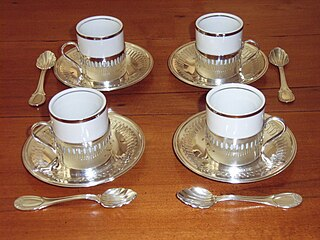This is an answer not to address the claim directly, but the implications of the claim (and thus some of its notoriety) by providing important context. Drinking 50 cups of coffee in one day now has serious health implications. In Voltaire's time it was definitely excessive, but likely not nearly as harmful.
Drinking that much today would be horrible.
While caffeine content varies from brew to brew, one cup of "Coffee, brewed from grounds, prepared with tap water" contains about 100 mg of caffeine. 50 cups is 5 grams of caffeine. For a 70kg adult this is about 70 mg/kg. Not enough to kill you, but we would expect bodily harm especially if that much is consumed regularly.
Coffee was very different back then.
- It was weaker.
- It was considered medicinal.
- A "cup" was likely much less than 8 ounces.
- It was often drunk with milk because...
- It was pretty bitter and gross.
You drank it for the buzz.
Today's coffee has undergone centuries of selective breeding to produce strains with specific flavors and caffeine content, while coffee then had not. At the time, coffee was grown in the Middle East, Indonesia, and the Caribbean. It was roasted on site and transported to England on ships in non-airtight containers which could take weeks or months. Coffee was brewed more like a tea, with the roasted beans put into boiling water. It was pre-brewed and then reheated.
Louis Lémery in his A Treatise of all Sorts of Foods, Both Animal and Vegetable, 1745, p. 367. had this to say about selecting your coffee beans...
You are to [choose] that Coffee which is new, well cleared of the [husk], clean, of a middling [Bigness], plump, of a dark grey, that is not mouldy, that hath not been wet with Sea-water, and hath a [pleasant] Smell when it has been dried.
As with many stimulants, coffee was considered to be a medicine...
Coffee fortifies the Stomach and Brain, promotes [digestion], allays the [headache], [suppresses] the Fumes [caused] by Wine, and other [spirituous] Liquors, promotes Urine and Women's Terms, opens [some] People's Bodies, makes the Memory and Fancy more quick, and People [brisk] that drink it...
...and the effects of too much coffee were also known.
The [use] of Coffee to [excess] makes People lean, - hinders them to [sleep], debilitates their Bodies, [suppresses] venereal Inclinations, and produces [several] other the like Inconveniencies.
What is a "cup of coffee"?
Then as today, referring to a "cup of coffee" was not a standard measurement, nor does it necessarily contain just coffee. The cup he drank from could have been anything from a 2 oz demitasse to literally a bowl.

As the coffee was stale and brewed Turkish style it could be quite bitter. By Voltaire's time they were adding milk to cut the bitterness. More milk meant less coffee.
Conclusion
Voltaire's "cup of coffee", used as a drug and brewed like tea from stale beans with milk added, likely contained less coffee and caffeine than our freshly roasted, ground, standardized, enhanced "cup of coffee" today.
Be careful about drawing conclusions about Voltaire's habits based on modern coffee.

